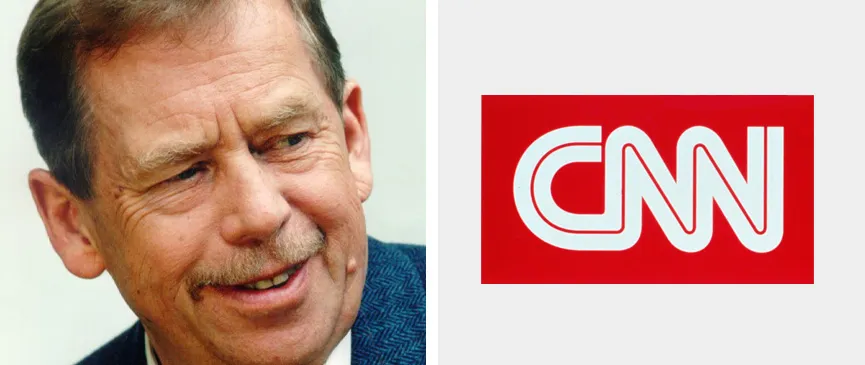Main content
Václav Havel and Cable News Network (CNN) Prince of Asturias Award for Communication and Humanities 1997

Václav Havel (Praga, Czechoslovakia, 1936 – Vlčice, Czech Republic, 2011) has an international reputation as a writer, thinker, and catalyst of Czechoslovakia´s democratic movement. He was elected the first President of that country (1990- 1992) and he is currently President of the Czech Republic (since 1993). His known political activity took off in 1968, the year in which he actively took part in the Prague Spring; he was also one of the founders of the momentous Charter 77 human rights initiative.
He studied dramaturgy and was one of the most popular playwrights in the country, although his political activities caused the Communist government to ban his work and silence his name. Incarcerated three times, in December of 1989 he was elected director of the new Writers´ Association of his country and at the end of the same month he was elected President of Czechoslovakia by means of an agreement between the Communist regime and the opposition. A few months later, in July 1990, he was elected the first President of his country after the collapse of the old regime.
He began writing poetry at the age of fifteen and later he dedicated himself to the theater, writing plays like The Garden Party (1963) and Memorandum (1965). Besides his activities as playwright and poet, Havel has proven his talent as a serious thinker and original essayist in works like Letters to Olga (1990), Responsibility as Destiny (1991), The Moral Reconstruction of Society, The Power of the Powerless, Summer Meditations (1991). Other well- known titles include Audience, The Conspirators and Mountain Hotel.
He received many honors for his work and activities in defense of human rights, including the Erasmus of Rotterdam Prize (1986), Olof Palme Prize (1989), Simón Bolivar (1990), Charlemagne (1991) and the IV Catalonia International Prize (1995), among many others.
Created by Ted Turner in 1980 from the "Channel 17" station in Atlanta, the Cable News Network (CNN) is currently considered to be the most important television broadcasting network in the world that is dedicated to news coverage. With a presence that stretches across the globe to nearly every country, by means of cable or its own satellite transmissions, the CNN group is made up of six companies (CNN, CNN International, CNN Headline News, CNN Financial News, CNN/Sports Illustrated and, since last March, CNN in Spanish), in addition to other smaller stations, involvement in television networks from other countries, three World Wide Web (WWW) servers on the Internet, two radio networks and a journalistic partnership (CNN Newsource).
Its reporters have performed an outstanding labor and, in spite of the risks, they have always been present at the scene of breaking news. From the beginning, CNN was designed to be commensurate with the expansion of cable networks at a time when their potential and possibilities for development were still not understood. Its broadcast philosophy consists of treating international information as if it were local news by demonstrating its importance in the everyday lives of viewers. Another constant feature of the network is its frequent use of live connections from the place where news is happening. This made them, for example, the only television station attendant at the explosion of the Space Shuttle Challenger.
CNN has broken all-time records for numbers of viewers during events like the Stock Market´s "Black Monday" of 1987 and the collapse of the Berlin Wall in 1989.
End of main content
